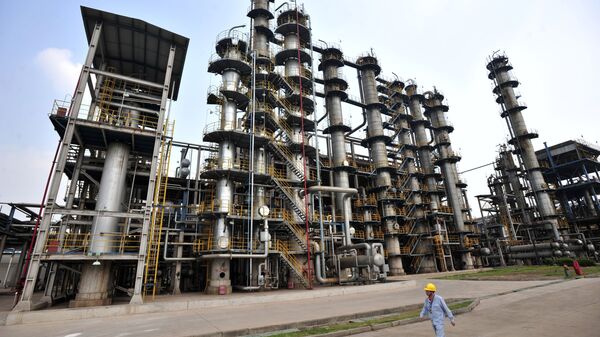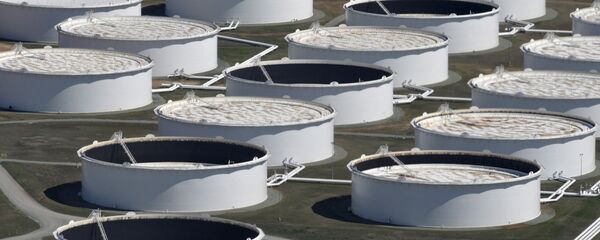Generally, global oil prices didn’t show very much in the way of gains on Monday, sinking into the “red zone” after a steady increase at the start of trading.
The market’s first reaction to the OPEC+ decision was a 4-5-percent increase in June and May futures for North Sea Brent crude. Then the price fell below the closing level of trading on 9 April.
The new output cuts stipulated in the OPEC+ deal are some of the largest ever seen and come in the wake of one of the most severe blows to demand experienced by the oil industry. This slump in demand has been facilitated by the COVID-19 pandemic and its fallout on the global economy. In May-June, the parties to the OPEC+ agreement will reduce production by 23 percent from the October 2018 level.
By the end of this year production will decline by 18 percent and by the end of April 2022 it will decline by 14 percent. During these three stages, OPEC countries will reduce production by 9.7, 8, and 6 million barrels per day, respectively. For Russia and Saudi Arabia, the reduction base will be 11 million barrels per day. Mexico insisted on specific conditions: in May-June, it will reduce production by only 100,000 barrels per day, not agreeing to a quota of 400,000 barrels. The United States will compensate for the missing reduction while reducing its own production by 2 million barrels per day.
The total reduction will be about 10 percent of global supply. Experts believe that as a result, a certain level will be set, below which oil prices won’t fall even in the event of a sharp drop in demand due to the COVID-19 pandemic. Global fuel consumption has already fallen by 30 percent due to the pandemic.
The agreement to reduce oil production should help stabilise energy and financial markets. Ultimately, this creates more favourable external conditions for restoring the Chinese economy, Huang Xiaoyong, Head of the Centre for International Energy Security at the Chinese Academy of Social Sciences, said.
"The pandemic has caused global oil consumption to decrease significantly, far exceeding the expected production decline. Therefore, the agreement’s main role is to either slightly increase the global oil price or stabilise the current oil price to prevent its further decline. However, this agreement shouldn’t be expected to significantly increase oil prices. In addition, the agreement to reduce oil production also plays a role in easing panic in the global economy, which can stabilise the global energy and financial markets to a certain extent. China is currently the most successful in controlling the pandemic; its economy is gradually recovering. Therefore, the agreement to reduce oil production directly corresponds to the interests of stabilising the energy and financial markets, as well as China’s search for ways to restore its economy".
The OPEC+ agreement, which a number of other oil producing countries are ready to join, is a compromise that has both pros and cons. It suits everyone, including China, Mikhail Belyaev from the Russian Institute for Strategic Studies noted.
"China needs stability and an understanding of the prospects of the global oil market. The OPEC+ agreement provides such stability and therefore suits China’s interests. As an oil producer, China is interested in high oil prices. This is important from the perspective of modernising and refinancing the oil industry. As an oil consumer, China needs a lower price; besides, an economic crisis is always easier to overcome with low prices. China managed to buy oil at the lowest prices, so in the near future, it will rely on these reserves. This will help overcome the economic decline. But this won't be a period of very rapid development, so China won’t be too active in the oil market. Recovery activity will come later, and then, at a new stage, the curve of China’s oil demand will go up. On the whole, consistent and predictable actions on the global oil market can be expected from China".
Cheap oil is beneficial for China. However, it is no less interested in the absence of geopolitical crises and regional conflicts associated with sharp fluctuations in global oil prices, Xu Qinhua, Head of the Centre for International Energy and Environment Strategy Studies at RUC, said.
The OPEC+ agreement to reduce oil production was approved by Russian President Vladimir Putin, US President Donald Trump, and King of Saudi Arabia Salman bin Abdul-Aziz Al Saud. They held a three-party phone call. Later, in a telephone conversation with Vladimir Putin, Donald Trump thanked the Russian president for working with Saudi Arabia and other oil producers, which has reassured global energy markets.


